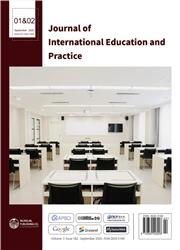Integral Thinking and its Application to Integral Education
引用次数: 7
Abstract
After the exploration of different kind of thinking skills oriented to discerning complex issues and phenomena, this article argues about the need to use a new modality of thinking, defined as integral thinking. Based on the holonic theory and on the proprieties of the holons and their part-whole relationships, the paper proposes and characterizes integral thinking, a kind of thinking that is holistic but also has span and profundity, going beyond conventional Aristotelian epistemic-inspired ways. Integral thinking joins in a single model the assets of premodern, modern and postmodern thinking systems; and helps in going beyond the nowadays syncretism of many perspectives. Integral thinking is the kind of thinking appropriated to the contemporary need to think integrally in science, culture, professions, and arts or about the evolution of personal consciousness. It’s useful also to be applied in the diverse professional fields, especially when comprehensive approaches are needed. Integral thinking can be used in holistic education and pedagogies. The use of integral thinking in the educational actuality can help to characterize the integral education practice and agenda.整体思维及其在整体教育中的应用
本文在探讨了不同类型的思维技巧以识别复杂的问题和现象之后,认为需要使用一种新的思维方式,即整体思维。本文以整体理论为基础,从整体的性质及其部分-整体关系出发,提出了一种超越传统的亚里士多德认识论思维方式的整体思维,并赋予了整体思维的特征。整体思维将前现代、现代和后现代思维体系的资产整合在一个单一的模型中;并有助于超越当今许多观点的融合。整体思维是一种适合于当代科学、文化、职业和艺术的整体思考需要的思维,或者是关于个人意识的演变的思维。它也适用于不同的专业领域,特别是在需要综合方法的时候。整体思维可以应用于全人教育和教育学。在教育现实中运用整体思维,有助于塑造整体教育的实践和议程。
本文章由计算机程序翻译,如有差异,请以英文原文为准。
求助全文
约1分钟内获得全文
求助全文

 求助内容:
求助内容: 应助结果提醒方式:
应助结果提醒方式:


